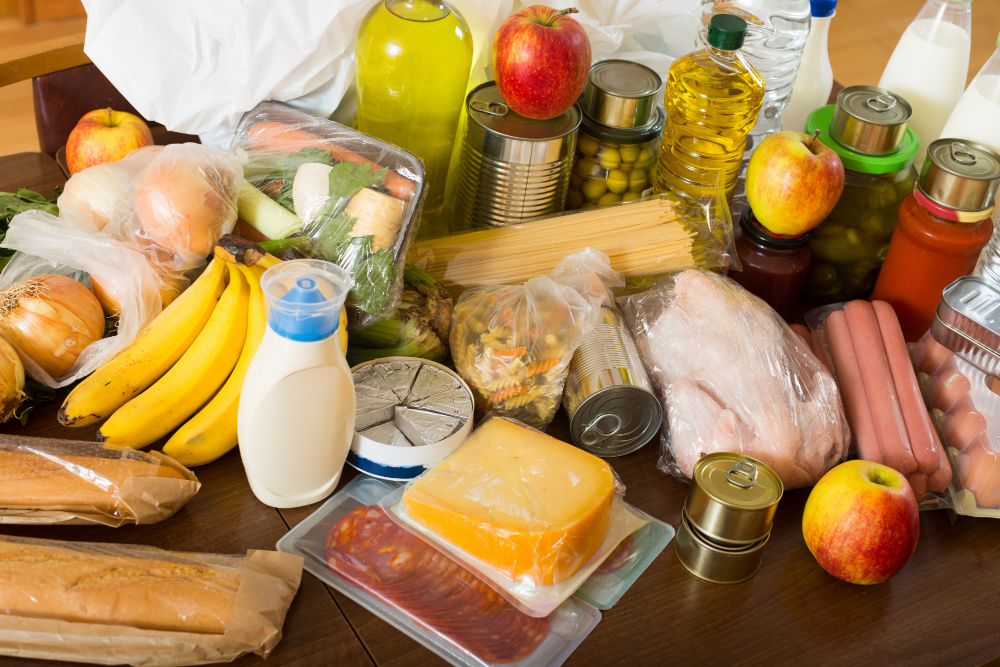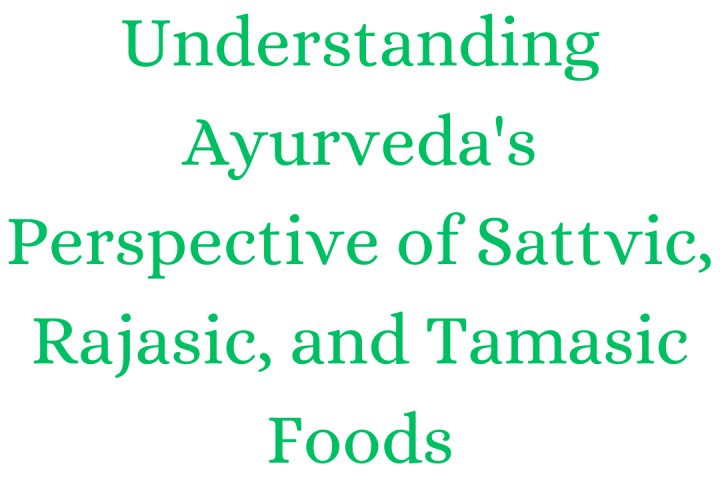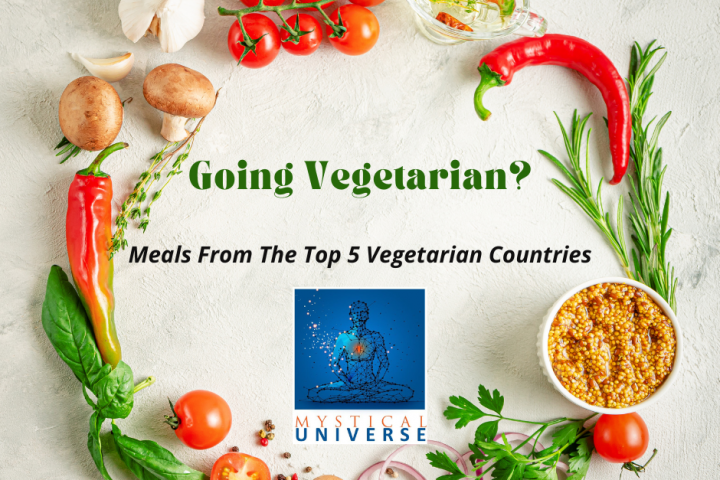Packaged food has become a new trend in the world of gastronomy. More and more people are opting for and relying on it for many reasons, one of which is the hectic life schedule of individuals. But, do you know that consuming packaged food daily can affect both your mental and physical health? Packaged food is not only deprived of nutritional content but is full of substances that aren’t good for your body in the long run. In this article, we will be discussing the many reasons to avoid packaged food and to shift to healthy food items.
Let’s begin with understanding what is a packaged food
Packaged food or processed food is any food item that is altered in some or the other way during preparation. Packaged foods are loaded with many ingredients to enhance their tastes and preserve them for a longer period of time.
Today, almost every kind of food product can be packaged be it meat, fish, vegetable, poultry, etc. These food items are added with certain chemical ingredients to increase the flavor and texture of the food product.
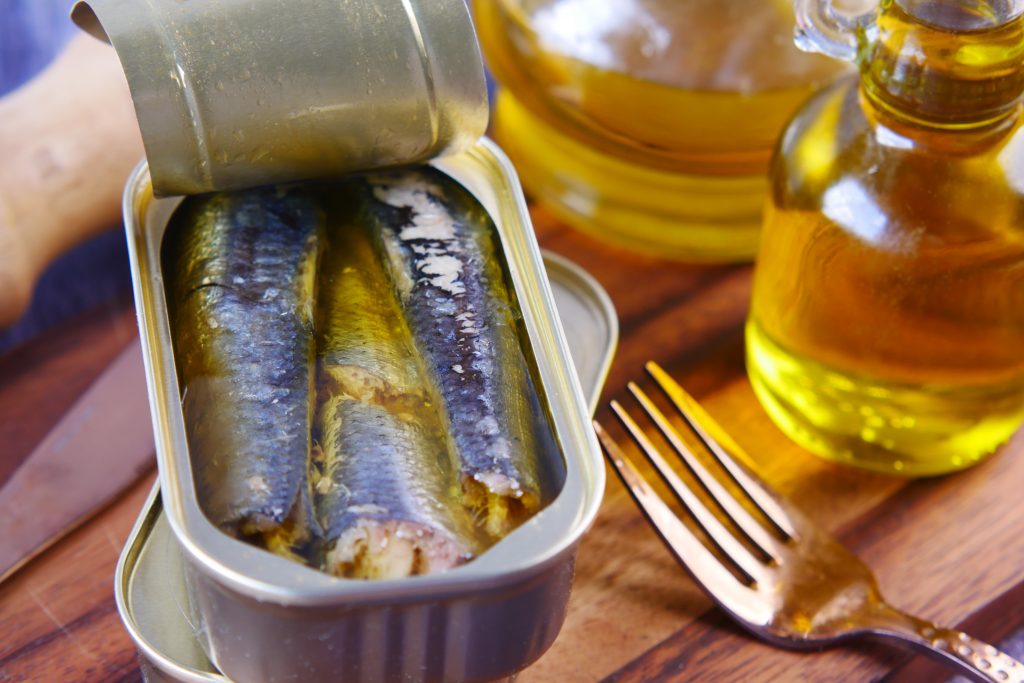
Some of the commonly added synthetic materials are additives, flavors, preservatives, colorants, etc., which we have covered in the later part of this article. Nowadays, companies are coming up with different ways to make a food product more convenient to use and to make it more stable in terms of durability and taste; some of the commonly used ways are canning, freezing, and baking.
Over the last decade, there has been a significant rise in the demand for packaged food all over the world. People from all walks of life are relying on it and making it their primary source of nourishment but the working class is largely dependent on it because of time constraints. Hence, they prefer packaged food as it is very convenient and handy which they can later microwave.
If you also choose packaged food over other sources then you need to know that along with satisfying your hunger it is the major cause of many diseases.
Due to the addition of various materials packaged food loses most of its nutritional value in the process. Hence, relying solely on this kind of food isn’t healthy.
Commonly used packaged foods that people used to prepare fresh in old times
In old days people used to consume fresh food items unlike today the food products were not heavily processed and packaged. Let us discuss a few examples of the food products which were consumed fresh during ancient times.
Juice/Indian Lassi/Sharbat/Almond Milk/Barley tea vs Soft Drinks
Ancient people used to consume drinks of freshly plucked fruits which were made by squeezing them. These drinks were high in nutritional value and also contained the pulp of the fruit.
Seasonal drinks like sharbat which was generally made and consumed during summer were also prepared fresh from natural ingredients like rose petals, lemon, basil seeds, hibiscus, mango, pineapple, etc.
Another popular seasonal drink is Indian lassi which is made of yogurt, sugar, water, spices, and sometimes fruits. Earlier people use to make it at home and drink it after lunch.
Today, soft drinks have become commonly used drinks that are not healthy and are devoid of nutritional value. Soft drinks are loaded with preservatives, colorants, and additives to enhance their taste and color and make them more appealing.
This not only decreases the nutrient content but also increases the risk of contracting various diseases. Today, the shelf value of these drinks has increased but at the cost of one’s health.
Milk is another beverage that is highly processed these days. Milk and milk products are said to be the richest source of calcium but today, packaged milk has lost its essence. Packaged milk is shelf-stable which means that they have a longer lifespan than fresh milk. The shelf life of the milk is increased through different methods of processing which makes the packed milk usable for up to six months. Earlier people used to drink fresh milk which was not only good in taste but was beneficial for one’s health.
Potato Chips – traditional method vs packaged chips

Packaged chips are flooding the food market of the entire world. These packaged chips are not only high in sugar but are induced with a great amount of sodium. In order to increase the shelf life of chips various preservatives are added to them.
On the contrary, earlier people used to make fresh batches of chips. They consumed the freshly prepared chips and prepared them as many times as they would need.
Flour – traditional method vs packaged flour
Earlier people used grinding stones/millstones to grind the grains for flour. The slow tedious process not only protects the vitamins and minerals but also contains all parts of the grain – bran, endosperm, and the grain’s germ, making it a healthier, wholesome, and low glycemic index food.
Today, processed flours have replaced the age-old method of grinding grains. Millers these days are using various ways to improve the shelf life of the flour by removing the bran and germ leaving only the starchy endosperm.
This improves the lasting value of the flour but also kills the vitamins and minerals during the process making it lose its nutritional value. Refined flour raises blood sugar and insulin in a person’s body causing metabolism dysfunction.
Spices – traditional method vs packaged spices
These days spices are loaded with preservatives and colorants which makes them attractive but are deprived of their essential oils. Whereas earlier people used to prepare the powdered spices at home, they plucked the herbs and dried them to make powder by grinding them.
This retains their natural oils and essence making them healthy and beneficial for a person.
Meat – fresh vs cold storage
Unlike today, earlier animals were slaughtered by butchers at their own premises and were preserved through the process of salting. Usually, the meat was stored in the cellars beneath the shop. In a time of no refrigerators, salting and smoking meat was a good method of preservation.
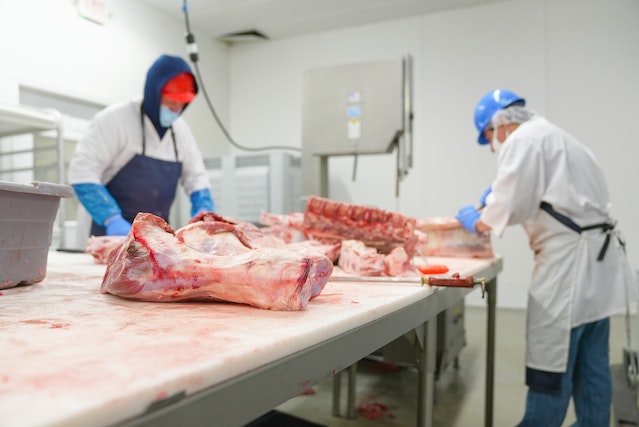
Today, various techniques are used to process meat in order to increase its shelf value and flavor. The meat is induced with many harmful chemicals but the most commonly used is Nitrite (sodium nitrite) which is added to processed meat products to preserve the red/pink color of meat and to improve the flavor by suppressing fat oxidation.
However, these N-nitroso compounds are cancer-causing substances believed to be responsible for some of the adverse effects of processed meat consumption. Consumption of processed meat can also put a person at risk of many chronic diseases which we have discussed in the later part of this article.
Ancient methods of food preservation
Ancient people used various methods to preserve the food they worked very hard to procure. Whether we talk about vegetables or meat, they used many chemical-free preservation techniques through which food could be used even months or years later. Let us discuss a few such techniques.
Drying

One of the common and earliest-used techniques to preserve meat and vegetables was drying through the sun or wind. The process of dehydration dates back to the Middle East when people dried food in the hot sun as early as 12,000 B.C. In some places “still houses” were built where there was not enough sunlight or wind, these houses were heated using fire to dry fruits, vegetables, and herbs.
Usage of Salt
In order to preserve the taste and texture of the food item people used to rub salt on meat and seafood. This also prevents the growth of harmful pathogens which needs moisture to grow.
Freezing
When the temperature went down people embraced it as an opportunity to preserve food. Food was buried underground or in the snow for preservation throughout the winter. This method led to the construction of “icehouses” or “iceboxes” for storage until the 1800’s when artificial refrigeration was invented.
Fermenting
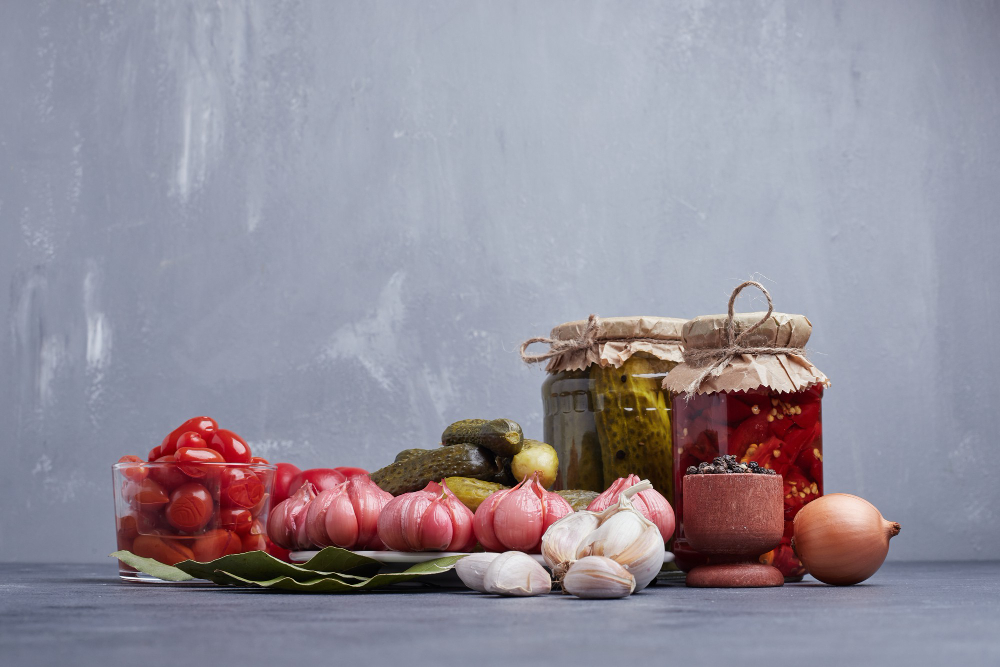
In this method, food is preserved by using microorganisms that destroy harmful pathogens responsible for food decay. The production of acid or alcohol during fermentation creates vitamins making fermented foods more nutritious and flavorful.
Pickling
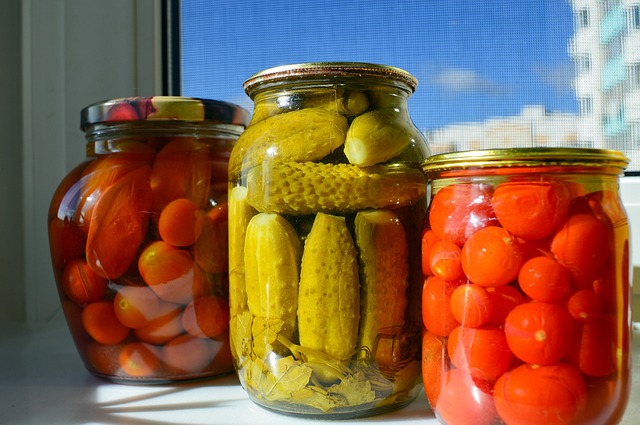
In pickling, food was preserved by using vinegar which was produced using starches or sugars. A famous Chinese dish called Century egg is one such example of preservation where duck, chicken, and quail eggs are preserved by mixing them in clay, ashes, salt, quicklime, and rice hulls, the process takes some weeks to several months time.
Sugaring
Sugaring is another technique in which food was preserved using honey or sugar. Sugaring helps in dehydrating harmful pathogens by extracting water from them. The ancient Greeks and Romans mastered the technique of using heated sugar and fruit pectin which we have come to know as jams and jellies.
Canning
Dating back to the 1790s, canning is the newest method of food preservation which involves the heating and cooling of food in jars or cans. Heating destroys harmful pathogens while cooling creates a vacuum seal to prevent contamination and deterioration.
Ingredients used in packaged foods
Added Sugar/Sweeteners
Soft drinks and frizzy drinks are loaded with high content of sugar which makes them sweet and attractive. People love to order them with food, snacks, and breakfast. No matter, how tempting they may look they are not good for one’s body.
Drinking these regularly can cause tooth decay, fatigue, lethargy, and sleepiness. This also increases the chances of losing one’s appetite; they are also diuretics which can result in dehydration.
Do you know junk foods are full of added sugar and can cause many health problems?

Check out our article to read more about the side effect of junk food on one’s mental and physical health.
Sodium
Sodium is another additive that can raise blood pressure in one’s body. Packaged food contains a lot of salt and consuming it more so than often will store extra water in the body.
Canned beans, soup, preserved meat, canned vegetables, etc., contain a high quantity of salt which results in an increase in blood pressure and puts a lot of strain on the heart, kidneys, arteries, and brain. Hence, it is important to keep a check on the consumption of packaged food products.
Trans-fat
Let’s talk about one more substance that is widely used in packaged food Trans-fat, the most commonly used fat these days. It is also called trans-unsaturated acids, or Trans fatty acids, is a type of unsaturated fat type which occurs naturally in very small amounts.
Trans fats are formed through an industrial process that adds hydrogen to vegetable oil which causes the oil to become solid at room temperature. This partially hydrogenated oil can be found in a variety of food products like commercial baked goods such as cakes, cookies, and pies, and also in fried foods like doughnuts, fried chicken, and frozen pizza as they are less expensive and are less likely to get spoiled.
Top 10 reasons to avoid the consumption of packaged food
We have already explained to you the composition of packaged food which is a combination of various preservatives, additives, colorants, trans-fat, etc. But, let us talk about the harmful effects of consuming packaged food daily.
Obesity

Packaged foods are filled with sugar and artificial sweeteners which if consumed in excess can be harmful. These are empty calories that are deprived of essential nutrients and can affect one’s metabolism.
Packaged food contains no fiber which helps in controlling an individual’s craving for eating more often than required. If these food items are consumed in excess it can result in the accumulation of fat in the liver and abdomen area resulting in weight gain.
Low nutritional value
Whenever a food item goes through processing it loses its nutritional value. A lot of vitamins and minerals get lost during this process and in order to make up for the lost nutrients various taste enhancers and artificial substances are added to it further lowering the nutritional value of the food item. Packaged food items don’t provide the required nutrition to a person’s body.
Kidney damage
Packaged food products are loaded with salt and too much intake of salt can result in the storage of water in the body. Excess fluids get stored in the body and put a strain on the kidneys to double the work to flush it out from the body.
If consumed daily may lead to a kidney problem as well. Hence, it is important to keep a check on the consumption of packaged foods. Furthermore, an increase in salt can also increase the protein in the urine once again leading to a kidney problem.
Digestive problems
There is zero amount of soluble fiber present in packaged food products one of the main nutrients required for the digestive process. It feeds the friendly gut bacteria in the intestine and ensures the smooth functioning of the digestive system. It also plays an important role in preventing inflammation-related autoimmune diseases.
Fiber is also responsible for many other functions such as it slows down the absorption of carbs which makes one feel full and satisfied.
Raises blood sugar level
Packaged foods are laden with refined carbohydrates which during ingestion get broken down in the digestive tract leading to spikes in insulin and blood sugar levels. This doesn’t let you feel satisfied and leaves you craving more food. This develops in habit and people start consuming more food than required on a daily basis leading to the development of chronic diseases like heart problems, kidney problems, etc.
Negative impact on the brain
Along with many other health-related problems, packaged food can also weaken your brain. With the increase in the number of food items, people have so many options to choose from and this has also increased the demand for packaged food products in the market. People are always on the lookout to try a new food item.
Consumption of these types of foods not only makes one crave more but eating more such foodstuffs makes one feel happy. The brain releases a happy hormone called dopamine which gives a sense of satisfaction to a person which can slowly and steadily lead to addiction.
Can cause infertility
Regular consumption of these food items increases the risk of infertility and miscarriage in people. The Trans-fat which we have discussed above has a negative impact on fertility. Hence, one should avoid such food products as much as possible for good health.
Increases cancer risk
No matter how tempting packaged food looks; it has a severe effect on one’s health apart from the above-mentioned diseases packaged snacks, and drinks increase cancer risk in a person by 12 percent according to a research.
The researchers in France studied the diet of 100,000 people for 7 consecutive years. The study found a slight increase in the rate of cancer especially breast cancer in those people. Therefore, it is advised to avoid it or reduce the consumption of packaged food slowly.
Triggers asthma

Bisphenol-A or BPA is a chemical used for the packaging of food containers in order to extend their shelf life. But, do you know that these leaches in your food cause asthmatic problems and can imitate the body’s hormones while disturbing the natural hormones?
Food items like canned fish, dried fruits, etc., should be avoided as they contain preservatives and colorants.
Transmission of bacteria
Packaged items like salads may contain harmful bacteria which can cause intestinal disease. Instead of promoting health, these ready-to-go salads can give you a stomach ache and cause diarrhea.
The work schedule of people these days doesn’t leave much scope for them to cook food at home. Furthermore, cooking isn’t everyone’s cup of tea hence, instead of completely relying on packaged food products one should always seek healthy food items, for example, instead of eating packaged fruits one should purchase whole fruit from the vendor, or replace canned beans with raw ones and later home-cook or microwave them.
Packaged food not only alters the food item but the life of the person consuming them by disturbing their physical and mental health. Hence, it is important to understand the harmful effects of such foodstuffs and bring about the required changes to replace them with more healthy options. Making conscious eating habits can ensure a healthy lifestyle.
You might also like –

